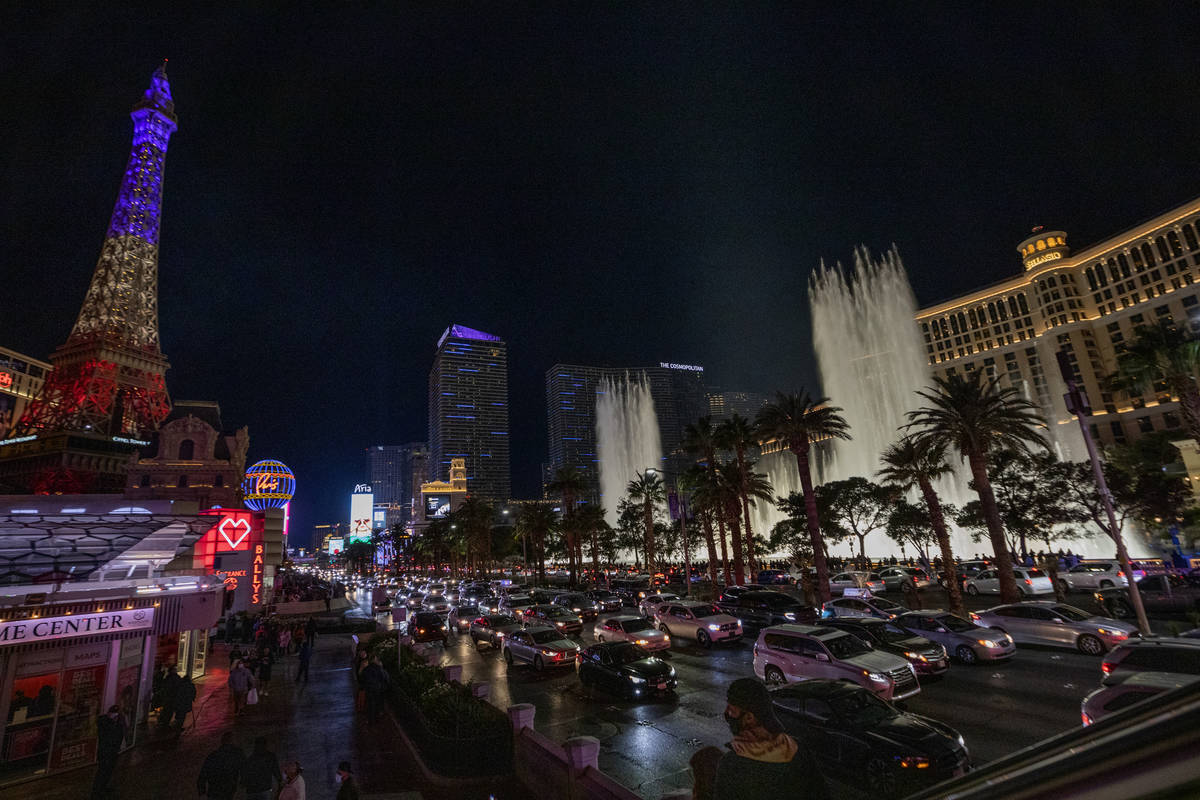Pandemic to pinch Nevada’s budgets for few years, panel told
CARSON CITY — The economic pinch caused by the COVID-19 pandemic means that Nevada will be working with tighter pockets over the next few years.
The Nevada Economic Forum projects that the state will collect roughly $8.5 billion in tax revenue during fiscal years 2022-2023, a drop of about $300 million from what the panel approved in 2018. The projection from the forum will form the framework of the two-year budgets lawmakers will set during the legislative session that will start in February.
The projected budget follows what the forecasters said during their meeting last month, that the economy is expected to continue to struggle for the next several months until a vaccine becomes widely available before starting to rebound slowly and getting back to near pre-pandemic levels during fiscal year 2023.
In a statement released Thursday evening, Gov. Steve Sisolak said the forum’s projection was a “sober reminder of the devastating impacts COVID-19 has caused on our state.”
“This global pandemic has created both a fiscal and economic crisis in our State, and my Office, the Governor’s Finance Office and state agencies will continue the challenging task of preparing an Executive Budget based on our new fiscal reality with the goal of preserving vital services as we plan for a post-COVID future,” Sisolak said.
Russell Guindon, principal deputy of the Legislature’s Fiscal Analysis Division, noted the recent announcement that the first doses of COVID-19 vaccines could be distributed to Nevada as early as this month, calling the news “encouraging” for the economic forecasts.
Gaming, live entertainment taxes
Some of the biggest revenue dips are expected to come from gaming and live entertainment taxes. Many of the large events that would usually bring tourists to the Las Vegas Strip, such as big conventions, large sporting events like National Finals Rodeo, and major concerts, were canceled, and the outlook for when those will come back remains uncertain.
But several forecasters said that gaming has performed better than expected since July and has been driven heavily by the local markets instead of U.S. or international travelers.
The current fiscal budget projected gaming percentage fees would generate about $1.57 billion. The projection the panel approved for the next two years predicts that tax will generate just $1.39 billion.
Guindon noted that the state’s Live Entertainment Tax collected nothing during the first four months of the current fiscal year and said that projections for that account were one of the hardest to forecast.
But once a vaccine becomes widely available and distributed to the masses, which could take well into calendar year 2021, forecasters expect that tax to rebound. The panel projected that live entertainment taxes will generate roughly $118 million in fiscal year 2023, nearing the levels seen before the pandemic hit.
“Not only do you have potentially pent-up demand, but also have pent-up supply,” Guindon said. “I’m sure you have many artists that would like to be able to perform before audiences.”
‘Catastrophic’ cuts
While the projected revenue represents a significant decline from the budget passed by lawmakers in 2019, the requested budgets from state agencies actually came in much higher compared with the previous budget. In total, the state department requests totaled roughly $9.7 billion, or about $1.2 billion higher than the number set by the forum Thursday.
Sisolak’s office has been prepping to offset that difference. In November, the governor’s finance office sent a memo to state agency department heads telling them to submit budget cuts of 12 percent from those requests for both fiscal years 2022 and 2023.
Those reductions to the agencies’ requests, if done in full, would be bring the requested budget down almost exactly in line with the budget set by the forum Thursday.
But some organizations contend those 12 percent cuts need to be avoided, saying that they would be “catastrophic.”
In a letter sent to Sisolak on Wednesday, a coalition of 60 organizations called on the governor to instead find ways to increase revenue for the state
“Increasing revenue rather than cutting programs and services will not only help Nevadans today; it will also help ensure our economy recovers as soon as possible and will set a stronger foundation to help guard us against future economic downturns,” the letter read.
The group included several progressive organizations, such as Culinary Local 226, SEIU 1107 and Make the Road Nevada. But also signed on were less political groups, like the Food Bank of Northern Nevada and Family Counseling Service of Northern Nevada.
The Economic Forum will have an opportunity to revise its forecast in early May, when the budget nears final approval.
Contact Capital Bureau Chief Colton Lochhead at clochhead@reviewjournal.com. Follow @ColtonLochhead on Twitter.























